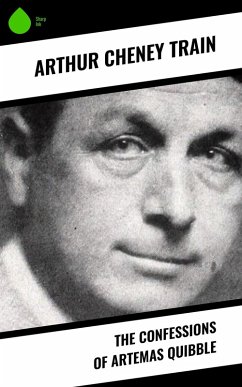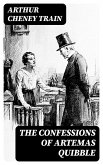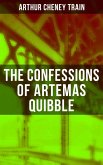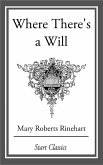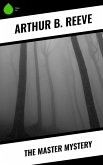In "The Confessions of Artemas Quibble," Arthur Cheney Train crafts a satirical and introspective narrative that delves into the psyche of a self-absorbed yet endearing protagonist, Artemas Quibble. Utilizing a humorous and engaging literary style, Train intertwines legal intrigue with autobiographical elements, resulting in a rich exploration of human folly and societal norms. Set against the backdrop of early 20th century America, the text reflects the burgeoning fascination with individualism and personal confession, while employing witty prose that keeps the reader both entertained and contemplative. Arthur Cheney Train was a prominent figure in the early legal landscape of America, serving not only as a lawyer but also as a writer and newspaper editor. His experiences in the legal field undoubtedly informed his creation of Artemas Quibble, a character emblematic of the eccentricities he encountered. Train's keen insight into the idiocies of both the legal profession and human nature allows him to explore themes of obsession, vanity, and societal critique, resonating deeply with his audience. This book is highly recommended for readers who appreciate a delightful blend of humor and introspection, making it an ideal selection for enthusiasts of American literature and those interested in a profound yet light-hearted examination of life's absurdities. Train's vivid storytelling and clever wit ensure that "The Confessions of Artemas Quibble" remains both relevant and enjoyable.
Dieser Download kann aus rechtlichen Gründen nur mit Rechnungsadresse in A, B, BG, CY, CZ, D, DK, EW, FIN, F, GR, HR, H, IRL, I, LT, L, LR, M, NL, PL, P, R, S, SLO, SK ausgeliefert werden.

